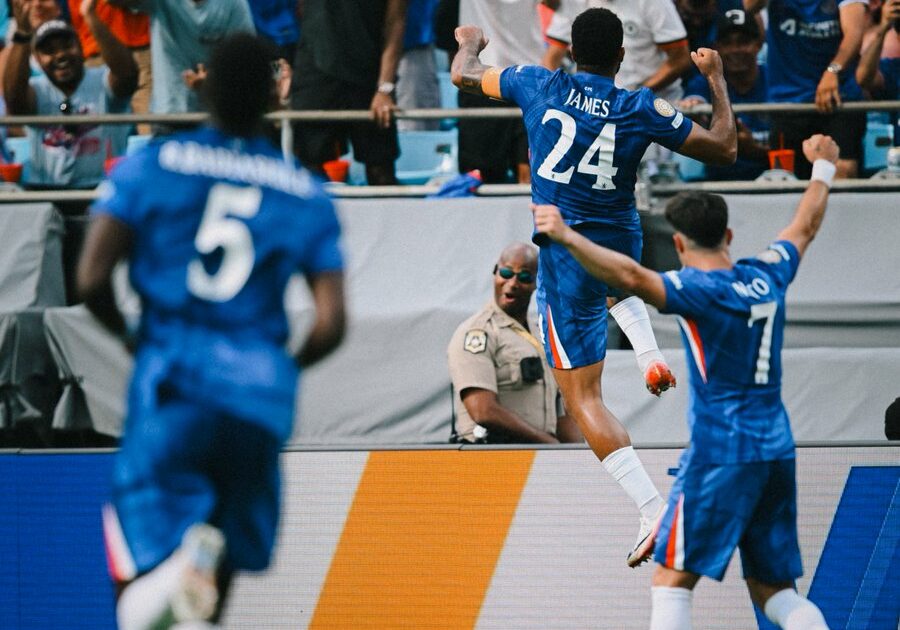Chelsea secured their passage to the Club World Cup quarter-finals after a turbulent and weather-interrupted clash against Benfica, ultimately triumphing 4-1 in extra time. The match, held at Charlotte’s Bank of America Stadium, saw Chelsea initially dominate proceedings, maintaining control for a significant portion of regular time. Reece James’s opportunistic free-kick in the latter stages of the second half seemingly set Chelsea on course for a straightforward victory. However, the unfolding drama was far from over, as an impending storm forced a near two-hour weather delay, disrupting the flow of the game and ultimately altering its trajectory.
The enforced break seemingly rejuvenated Benfica, who capitalized on the disrupted rhythm to snatch a dramatic equalizer in injury time. A handball by Chelsea substitute Malo Gusto, confirmed after a VAR review, resulted in a penalty for Benfica, which Angel Di Maria coolly converted, sending the match into extra time and injecting renewed tension into the encounter. This sudden shift in momentum, fueled by the extended interruption, left Chelsea manager Enzo Maresca visibly frustrated, questioning the handling of the weather situation and its disruptive impact on the game.
The first half of extra time witnessed an end-to-end battle, with Benfica, despite being reduced to ten men following Gianluca Prestianni’s second yellow card at the end of regulation time, showing resilience and posing a persistent threat. However, it was Chelsea who broke the deadlock in extra time, restoring their lead through Christopher Nkunku’s close-range finish after Moises Caicedo’s initial shot was parried by Benfica goalkeeper Antoliy Trubin. This goal proved crucial in shifting the momentum back in Chelsea’s favor.
With Benfica forced to push forward in search of an equalizer, gaps began to appear in their defense, creating opportunities for Chelsea to exploit on the counter-attack. Pedro Neto seized one such opportunity in the 114th minute, calmly slotting the ball past Trubin to extend Chelsea’s lead to 3-1. The two-goal cushion provided Chelsea with much-needed breathing room in the closing stages of extra time. Just three minutes later, Kiernan Dewsbury-Hall added further gloss to the scoreline, capping off a decisive counter-attacking move to secure a 4-1 victory and seal Chelsea’s progression to the quarter-finals.
The match ultimately unfolded as a tale of two halves, with Chelsea controlling proceedings before the weather delay and Benfica mounting a spirited comeback following the resumption of play. The extended break, while necessary for safety reasons, undeniably disrupted the rhythm of the game and injected a significant element of unpredictability into the encounter. Chelsea, despite the setback of conceding a late equalizer, ultimately displayed their resilience and quality in extra time, capitalizing on Benfica’s numerical disadvantage and exploiting their vulnerability on the counter-attack to secure a comfortable victory.
The controversy surrounding the weather delay, coupled with the dramatic swings in momentum, made for a captivating spectacle. While Chelsea emerged victorious and advanced to the next stage of the competition, the match served as a stark reminder of the unpredictable nature of football and the significant impact external factors can have on the outcome of a game. The debate surrounding the handling of weather delays in football is likely to continue, with differing perspectives on the balance between player safety and preserving the integrity of the competition.














